German photo album. "Russian pigs do not walk, but crawl"
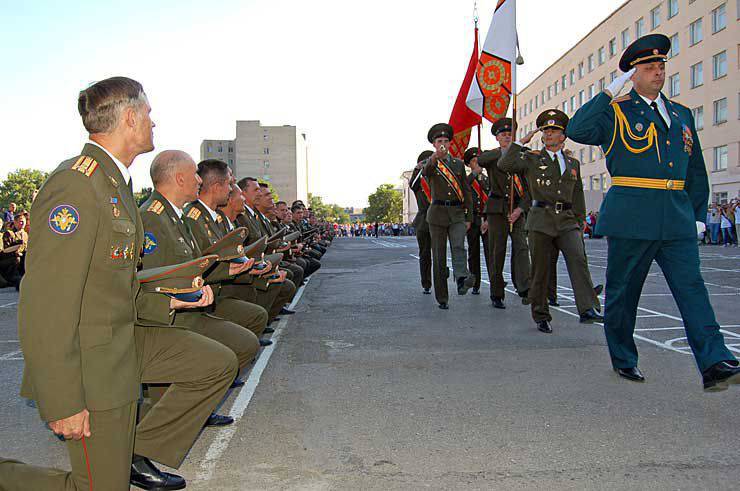
No, our young generation has not died. The spark of the memory of his relatives and friends, and of many other people who have gone to the war now far away is burning. But how much pride in schoolchildren when they collect data from different sources bit by bit! The main thing is to give this spiritual basis for our children in time, to give them, as one of the directors of the Rostov schools said, those reference points, based on which they will live on. Without this it is impossible.
Strikingly different. As soon as this right direction begins, young people immediately respond and take the most active part in it because there is real pride in them. But we need people who can help our young people. It turned out that Alexander Pavlovich Stasyuk, the deputy of the Rostov Patriotic Military-Patriotic Club, told me about the tragic and blasphemous stories the burial of prisoners from the death camp No. XXUMX, located during the war years on the territory of the former Rostov Military Rocket School (RAU).
According to these stories, the article “The Ghost of the RAU” was born, which was published on the website “Military Review”. This article by Alexander Pavlovich - he is a man of the old formation and doesn’t really trust the e-mail - printed out and took to the school number 7 of the city of Bataysk (this is a suburb of Rostov-on-Don), as well as other materials relating to the unknown grave. Not! She is known for this grave, but only officials prefer to forget about it. Forgetting intentionally. And from this the soul of Alexander Pavlovich was simply wounded, how many years ago the Rostov underground and Red Army soldiers were wounded and exhausted in the death camp. And Stasiuk gives this pain to another generation. This pain is fair and righteous.
And also Stasyuk has anger. And this anger is also fair and righteous. Anger on incomprehensible backstage actions of the authorities.
But he finds support in the face of the younger generation. This support gives Stasyuk the strength to live on and fight for the truth.
Ekaterina Ivankina, one of the students of 9 "A" class of gymnasium №7, wrote a whole study. I quote excerpts from it, as well as memoirs of other schoolchildren from different schools, where I managed to visit, about my grandfathers.
Ekaterina Ivankova writes: “My grandfather — Vanzha Viktor Leonidovich, colonel of the rocket troops, 25 served in the Red Banner Rocket Division in the Krasnoyarsk Territory for years, my dad - Ivankin Vladislav Sergeevich, a graduate of the Rostov Military Institute of Rocket Forces (RVIRV) 2000 of the year. That is why I became interested in the history of the school, which trained specialists for service in the missile forces.
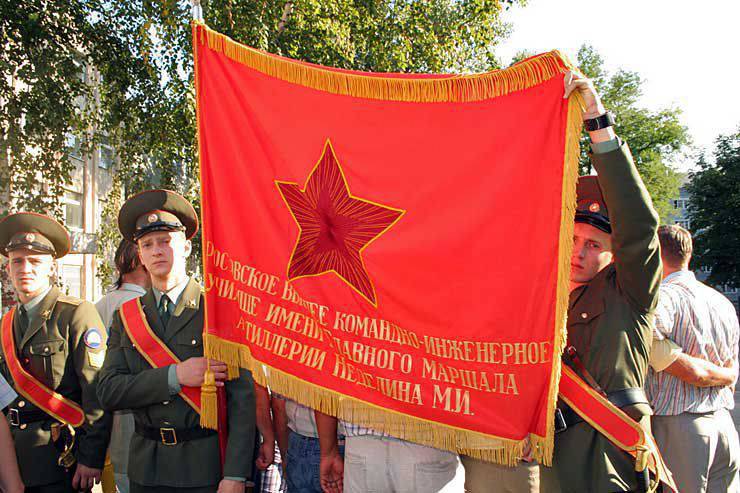
And although RVIRV has no direct documentary relationship to the first RAU, since it was only created and formed on the territory of the former military town of the Rostov Artillery School, its history is inseparably linked with the history of the first RAU. And this school really has a valiant, heroic history. At present, historians and public figures of Rostov are appealing to create a military memorial complex on the territory of the school.
Therefore, I set the purpose of my research work to find out what events in the history of the school were the reason for creating a memorial memorial, to study the history of the first RAU and RVIRV on the basis of archival materials and memories of veterans and graduates of the school.
In the course of the research, I contacted the chairman of the Council of Veterans of the RVIRV, General - Colonel Gerbach Valentin Vladimirovich, met with a graduate of the RAU 1941 of the year, a veteran of the Great Patriotic War, a veteran of the service at the RAU, a colonel in the reserve - Karpenko Alexander Zakharovich and the deputy head of the Rostov city club “Patriot”. Alexander Pavlovich. I looked through a large number of archival documents from the personal archives of A.Z. Karpenko, graduates RVIRV Danilov S.V., Borovensky A.N., head of the laboratory of the Institute 2011g. V. Evtukhova, the Patriot city club, got acquainted with the publications in the media about the Rostov artillery school.
Conducting the study, - Ekaterina writes, - I was shocked by some pages of the Rocket School history: the feat of the RAU cadets in 1941, the gross hospital # XXUMX in the college barracks. Not many, even those who previously studied at the school are familiar with these facts. We just have to keep the memory of those terrible days. It is necessary to acquaint modern schoolchildren with information about the military and post-war history of the school. After all, it is by the example of your valiant countrymen that you can bring up real future defenders of the Motherland.
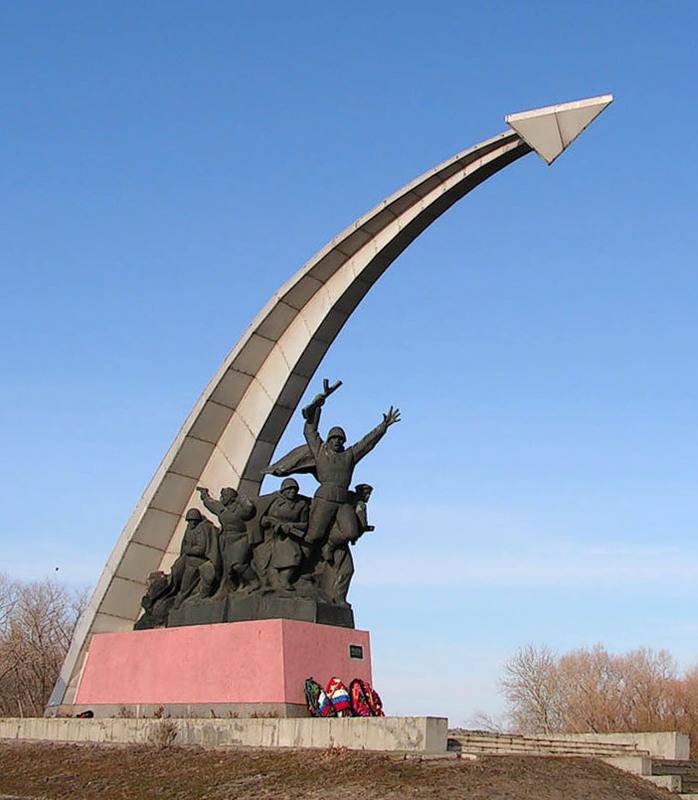
Since Rostov-on-Don is now a city of military glory, according to its status it is entitled to a military history museum. Representatives of the Council of Veterans, search organizations, the Society for the Protection of Monuments propose to create a military memorial complex in a small area of the former RAU. “We should not let the memory of him, our dead compatriots, disappear along with the liquidation of the school, the merits of living veterans of the Great Patriotic War and the schools that make up the pride and military glory of our city be forgotten,” the senior student says.
Bataysk schoolchildren recorded a special video message in which they are asked to do justice and honor.
“We, modern schoolchildren, give our vote for the restoration of the military memorial complex on the territory of the school. We will not only be grateful, but also ready to become associates in perpetuating the memory of our ancestors. We are on the way to the search for the names of those who have fallen in the fight against fascism. After years we will tell our children about them and leave the covenant to convey the tragic story of their destinies to the next generation, ”the video message says.
Schoolchildren cannot remain on the sidelines also because practically in every family there are dead and past war grandfathers and great-grandfathers. Children remember them and are proud of these pages of history. This memory is holy. And this pride is real. It is on such pride that the generation should be brought up, and not on the false, western supposed pride imposed on us, the Russians, which is based on the thirst for an inexhaustible profit of money. Sorry, well, just could not hold back. I am writing holy words and here is money. We have everything - money, cars, this is junk and stuff. But why all this, when the soul becomes impoverished? Day by day, hour by hour. And then these profited, grabbing people run to the church, beg their sins. To be honest, I'm scared. What is lacking now is the time, the present time, where there was still more good than the present evil. Where is it, is it good? Where is it? Even our children are burdened with mercantile junk. But there is a spark of good in them. and the lordship of their spirit is still preserved.
I close my eyes and see the Dnieper
During his lifetime, Vasily Terent'evich often recalled the war days, telling his children.
In February, 1942, he was called up to the Red Army, and since March 1943 he fought on the front as commander of the machine gun crew of the 1120 regiment (333 division, 6 army, 3 Ukrainian Front). In battles to expand the bridgehead near the village of Kanevskoe (Zaporizhia region, Zaporozhye region), his combat crew put down three firing points, repulsed the enemy’s counterattack and allowed the unit to move forward. For the courage and courage shown in the war, my great-grandfather of 22 on April 1944 was awarded the title Hero of the Soviet Union.
After the war, Vasily Terentievich returned to his native land, worked, grew bread on collective farm fields. For peace work he was awarded the Order of Lenin, many medals.
Until the end of his days, Vasily Terent'evich remembered unforgettable war years: “I’ll close my eyes,” he said, “and I see myself on the Dnieper, with sergeant chases, guys from my machine-gun crew, that memorable day of 26 November 1943 of the year.
The war rolled to the West. When our troops reached the Dnieper, the order came: "Force the river." The platoon commander meticulously checked that everything was ready, and ordered to cross over, gain a foothold, take up defense and ensure the crossing of the main forces.
It is difficult to cross the Dnieper. “In October, there’s nothing better to wait for,” one of the soldiers remarked. “Vodicka is cold ...” Suddenly, lead hail hit the logs, water, as if running through the rain. A heavy raft goes slowly, as if it does not go at all. Finally, the logs stuck into the coastal sand. On the move, choosing a vantage point, they began to hastily dig in. Every minute they were waiting for an enemy attack. And she began. Together earned machine guns and assault rifles paratroopers. The first enemy attack choked. Hour after hour continued unequal fight. Soldiers were leaving. Less and less remained on the narrow bridgehead of serviceable machine guns, their lines became less frequent. But here from our shore rafts appeared - this was reinforcement. Late at night, I lay with my hands behind my head, looked into the dark Ukrainian sky, and experienced everything anew ... "
Japanese flags trampled too
“My grandfather, Afanasy Nikolayevich Shishkov, during the Great Patriotic War, served in the Far East and participated in the war with Japan.
In 17 years, 15 November 1943 of the year, was drafted into the army, and he was sent to the Far East. Demobilized 10 July 1950 of the year.
He served in the communications regiment, specialty - telegraph operator. Grandfather provided government communications. Military rank - corporal. He was awarded the Order of the Patriotic War, II degree, the medal "For the victory over Japan."
After the service, he returned to his village, and in 1966, he moved to the Rostov region to the Volgodonsk district, the village of Michurinsky. 38 has worked for years as a chauffeur. My grandfather has five granddaughters, three grandchildren and six great-grandchildren.
Now my grandfather lives in the village of Michurinsky, this year he will be 89. Of course, the forces are not what they were. My grandfather often hurts, no longer gets out of bed. But I hope he still lives.
Stump - five centimeters
Menyaylo Ivan Sergeevich was born on November 23 1926 of the year in the village of Leninka, Zernogradsk district of the Rostov region in a large family. In 1942, he graduated from 7 classes. At the end of June 1942, the Germans occupied the village of Leninka. Local residents were immediately assigned to the headman and assistants, who forced the young to work, plow the land on the bulls, the children did all the hard work, and they were severely punished for minor offenses.
The crop turned out to be very good that year, the Germans immediately took the grain, loaded the buses with sacks and took them away.
In winter, too, had a hard time, worked as a bullockman and groom. The village of Leninka and the neighboring villages were liberated several times by our soldiers. There were great fierce battles, many soldiers died (they were buried in a mass grave in the center of the village of Leninka), many houses burned down, during the retreat the Germans blew up the mill - the main breadwinner at the time of war. During these battles, women, old people and children had to hide in cellars. The whole village was liberated in February 1943 of the year.
Ivan went to the front of the 8 in May of 1943, when he was only sixteen and a half years old (I don’t know, maybe he added years). For two months in the city of Stalingrad, they were trained as cavalrymen — to ride horses and chop them up. Then, on a steamer along the Volga, they were sent to the city of Saratov (Syzran station) and in the forests continued their training in military art. Two months later, the train was sent to Moscow to the officers' school, where they were already taught as artillerymen.
In January, 1944 was given military uniforms and was sent to the front by a freight train. Drove to Kiev, unloaded, and they walked on foot for four days to the city of Zhytomyr. There they were given automatic rifles and carbines, and they began to comb the Zhytomyr forests, freeing the land from Bandera gangs. Later, my great-grandfather got on the 1-th Ukrainian Front in the 10-th artillery anti-aircraft division RGK (reserve of the main command) 975-th artillery-anti-aircraft regiment of the RGK. They carried out a strategic military offensive in order to liberate Western Ukraine and South-Eastern Poland from the German forces.
These areas were of great economic and strategic importance, so the military operation was one of the so-called Stalinist 10 strikes. These were the offensive of the Soviet units against the enemy stubbornly clinging to each position. The battles were fought for each bridge across the river, for each farm, for each village, for each house.
It is bitter, insulting, painful for those who died, who did not have time to return home. In the summer of 1944, the troops of the 1 of the Ukrainian Front reached the Carpathians and, interacting with the troops of the 2 of the Ukrainian Front, split the strategic front of the German troops into two parts.
There were fierce battles for the liberation of the western regions of Ukraine and the south-eastern regions of Poland from the Germans.
It was on August 28, 1944, 12 km from the city of Krakow in Poland. About 30 german tanks broke through the defense and moved to the unit in which Ivan Sergeyevich Menyailo served. In that battle, 14 German tanks were knocked out, they were not allowed to continue. Private gunner-gunner Ivan Menyailo was seriously injured (through bullet wound to the right thigh). In this battle, before his eyes, his front-line friend from the city of Bataisk, Peter Mezin, died - a bullet hit his head. Shock! Near the blood flows from the boot. Lost consciousness. Woke up when a nurse was treating a wound. All the wounded were loaded into cars and taken to the front-line hospital, which was located in the stables, where the Polish landowner raised horses.
The wounded were laid on solid bunks, covered with straw and covered with sheets. Ivan lost consciousness several times, the pulse was no longer felt, and the orderlies, taking him for the deceased, were carried to a pit in which they buried our soldiers. Thank God that he was not immediately thrown into a hole, but they put a stretcher beside him and followed the other dead. When the orderlies brought other stretchers, put them nearby, and Ivan at that time came to his senses and opened his eyes. The orderlies, when they saw, were frightened and immediately sent their grandfather to the operating room. There, under anesthesia, a foot was cut off because gangrene started.
Then he learned that he had lost a lot of blood, and in order to save him, three Poles donated blood for him. After the operation, they were loaded onto a hospital train and taken to a stationary hospital. But neither in Kiev, nor in Voronezh, nor in Rostov, nor in the village of Kushchevskaya, nor in Krasnodar, nor in Baku, the wounded were taken because the hospitals were overcrowded. They were accepted only in Yerevan (Armenia). While being transported, Ivan hit the wound several times, which brought unbearable pain. But the wound did not heal, it was inflamed, and there was no other way out how to cut off the inflamed leg area.
On the second day, upon arrival in Yerevan, they had the last operation, the seventh in a row, leaving a stump five centimeters long. The stitches removed 7 in November 1944 of the year, gave the hands crutches and began to learn how to walk. Then he was taught to climb the wall, to fight, so that he could stand up for himself with crutches.
He came home 1 on April 1945, a disabled person in group II, on a prosthesis, where he heroically spent the day, but rubbed the stump into the blood so strongly that he never wore a prosthesis in his life, but walked with a crutch and wand. Since June 1945, he has already worked as the secretary of the village council, was the secretary of the Komsomol organization, the accountant on the collective farm, and from 1958 to 1982 - the electrician of the Leninsky radio center. He raised two wonderful children, was very proud of his grandchildren and great-grandson, loved his land, homeland, people, those for whom he fought for himself, for whom others laid heads.
He was never idle, was a master and with great diligence he repaired shoes, watches. People from all over the village turned to him, but he never took money from anyone for his work. He read a lot, actively discussed everything news. He was often invited to various events in the school, in the house of culture. I have never blamed anyone, did not complain to anyone. He was gone in 2010 year. For great-grandchildren, there remained the awards of Menaylo Ivan Sergeevich: Order of the Patriotic War 1 degree (1985), medals "For Victory over Germany" (1946 year), "For Courage" (1947 year), "Defender of the Fatherland from the President of Ukraine" (1999 year). And a lot of commemorative medals.
Rose from the dead
Asinovsky Anatoly Aronovich was born on July 7 of the year 1924. He was only 17 years old when the war began. But as soon as he turned 18, he volunteered to serve in the front. He was immediately sent to the city of Kirovabad to service combat aircraft. He took an active part in the conduct of aerial reconnaissance, the adjustment of artillery fire.
During World War II aviation detachments were combined into aviation groups, which were used in the main areas of operations of the ground forces. These units bombed enemy targets, conducted air battles, aerial reconnaissance. Anatoly Aronovich said that once, after completing a task in the rear of the enemy, for several days he could not get out to his own, fell under the fire of a sniper, and he was already listed in the death toll. However, he not only returned to his native detachment, but also brought valuable information, for which he was awarded the medal “For Military Merit”.
His grandson recalls: “In the last days of the war, grandfather, among many fighters of his aviation group, was awarded the medal“ For Victory over Germany. ” My grandfather was always fond of drawing, but after the war he decided that this passion would become his profession and got a job at the Komsomolets cinema as an artist. Then he worked as a graphic designer at the Tselinsky House of Culture. From September 1978, he moved to Tselinsky secondary school №9, where he worked as a teacher of drawing and labor education until retirement. My grandfather died in 1989, but his memory is carefully preserved in our family. Pictures painted by my grandfather decorate the walls of my room. ”
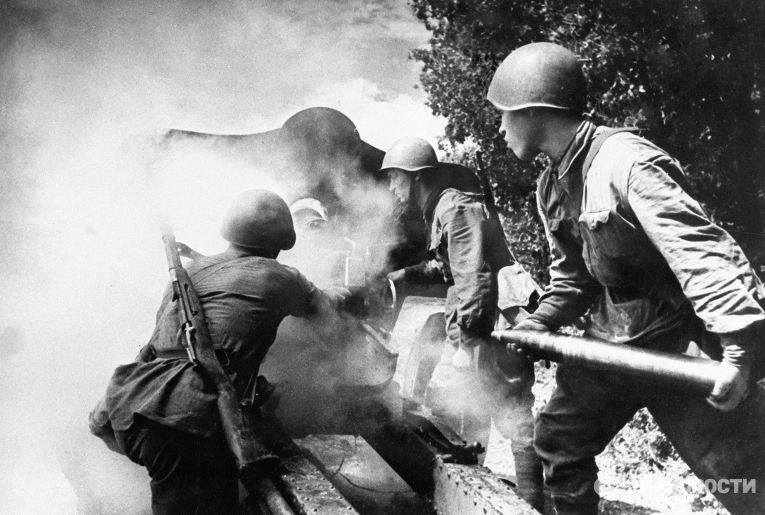
Second buried alive
Front-line teacher Mayevsky Ivan Ivanovich was born on 16 in May of 1921, in a large family with fourteen children. Despite the material difficulties, his mother sent Ivan to study at the history department of the Stavropol Pedagogical Institute, which he graduated with honors in 1940 year. 23 June 1941, on the second day of the war, he is being drafted into the army. The rifle division of the Western Front, in which Senior Sergeant Ivan Mayevsky was enrolled, repelled enemy attacks in the Moscow sector.
5 December 1941, on the day of the Soviet counteroffensive near Moscow, he was wounded, but remained in the ranks, replacing the slain commander. In the hospital, Ivan Ivanovich found out that he was awarded the medal "For Military Merit." Only in November of 1942, having taken medical treatment, he leaves the hospital and participates in the Battle of Stalingrad as part of the Steppe Front. In January, he received a second severe wound. For several hours he, with a heavy contusion and a fractured leg, lay sprinkled with earth. His wounded, seriously injured, was saved by a medic who heard a low moan.
For participation in the Battle of Stalingrad, Ivan Ivanovich was awarded the medal "For the Defense of Stalingrad" and the Order of the Red Star.
After six months of treatment at the hospital, military fate was abandoned in the Crimea, where, as part of a special 9 army, he participated in the liberation of the peninsula from the Nazi invaders, under the Simferopol received a third wound.
In July, 1944, Ivan Ivanovich participates in the Belarusian strategic operation "Bagration", during which the entire territory of Belarus was liberated from the Germans.
For the battle near the city of Vitebsk, Ivan Ivanovich was awarded the Order of the Patriotic War of the II degree. In October, 1944, in the area of the city of Königsberg, after a fierce battle, he was hospitalized for the fifth time, and there he already found the Order of the Patriotic War, I degree. At the end of the war, Ivan Ivanovich became a teacher at the Chelyabinsk Tank School. In the 1953 year, after returning home, he graduated from the mathematics department of the Rostov Pedagogical Institute, and in 1957, the faculty of physics at Rostov State University. From October 1965 to 1981, Ivan Ivanovich Mayevsky worked at Tselinskaya Secondary School No. 9 as a mathematics teacher. The school has a museum for a long time. On the place of honor is the stand of the “Teacher of the school - participants of the Great Patriotic War”, where there is a photo of Ivan Ivanovich.
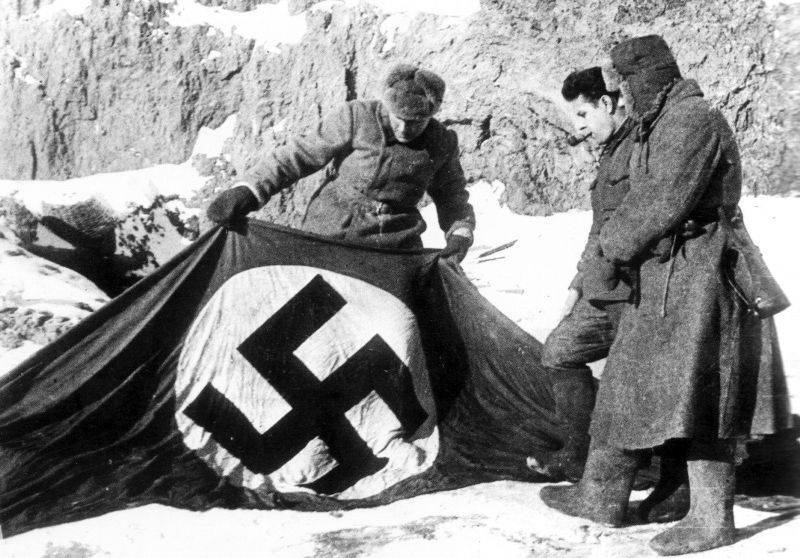
"Russian pigs do not walk, but crawl"
Margarita Zakutneva, a student of 6 class of school number 9, told me: “My family and I live in the most beautiful village with the same wonderful name - Sweet Balka. And I also want to tell about my great-grandfather, a veteran of the Great Patriotic War Ovcharenko Ivan Semenovich - the defender of the Brest Fortress. He talked a lot about that terrible wartime. About how inhuman torture, abuse he had to endure in the Nazi death camps: Auschwitz, Majdanek, Buchenwald. At 4 in the morning hours German heavy artillery struck Brest and the garrison, bombers roared in the sky, bombs exploded, mixing the bloody remains of human bodies with piles of brick and stone. Tigers moved in an avalanche. Hum, roar, fire, blood and corpses, mountains. And in this bloody dawn over Brest, as well as everywhere on the border, they could not understand right away that this was war. Peace Treaty signed. Everyone believed in his power, but it was a war — cruel, inhuman, as was all wars. There were many dead. But the command of the garrison quickly orientated, the soldiers, entrenched, gathered spirit and bravely began to fight, restraining the onslaught of the German army. The Germans had already occupied the whole of Belarus. But the garrison held out, stood to death.
The Germans were amazed at the resilience, courage of Soviet soldiers. Such an enemy had never met before. Here, in the fortress, my great-grandfather Ivan Ovcharenko fought until the last days. Run out of ammunition. We needed water, food. In an unequal battle, many died, others were captured. Grandfather was wounded and captured.
Sent to a concentration camp. In the death camps, the furnaces smoked day and night, they burned people. Near Poland, the camp Auschwitz - there and carried the captives.
For the slightest misdemeanors, they stripped naked, put them in a punishment cell, and when 30-degree frost was poured over water, until the person turned into an icicle. Torture and humiliation, especially of the Soviet soldiers, fascists amused. They will keep the hungry, feed them with rotten fish, but they don’t give water, let a trickle of muddy water, the sufferers will rush to the water with a crawl, because the Germans are shooting over their heads. They crawl, and the Germans took photographs and then pasted them into albums and signed: "Russian pigs do not walk, but crawl."
Sometimes prisoners were taken chained to work in a dungeon. On one of these days, the captive Ovcharenko, tired of enduring humiliation, hit the German so hard that he fell to the ground. Ivan was beaten to death, as the executioners thought, and the bloody, mutilated, was thrown into the garbage pit.
But the young organism has conquered death, they say about such people "born in a shirt". He began to move, and, fortunately, he was seen by a passing German, a resident of a neighboring village. The ordinary man, who was also afraid, spoke an enemy language, but was a man.
He pulled Ivan at his own peril and risk, dragged him into his house, went out. This kind man had a strong prisoner, recovered, gathered strength, but he remained forever disabled. The great Victory Day was approaching, my great-grandfather was liberated by the Allied forces, handed over to the Soviet side by agreement.
All prisoners, prisoners of concentration camps, forcibly taken to work in Germany, civilians - carefully checked the Special Section. It so happened that great-grandfather got into the commission, where the officer was a countryman from Tselina, Pavel Petrovich Klopenko. He met on the lists a familiar name.
Grandpa returned home from complete non-existence: for five years nothing was known about him. I came home in the 1946 year when I was fully tested by a special department. Life passed, but the memory did not heal, the soul ached.
My great-grandfather got a heavy share, but terrible, inhuman tests did not break him, until the end in his heart he bore love for people. I am proud of my great-grandfather. ”
May their memory be holy!
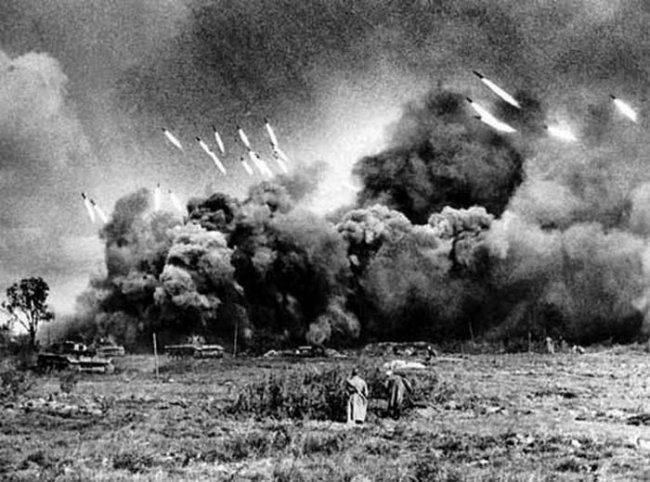
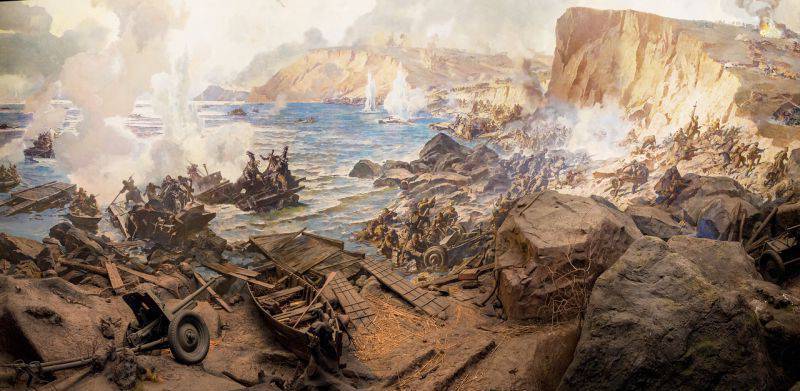
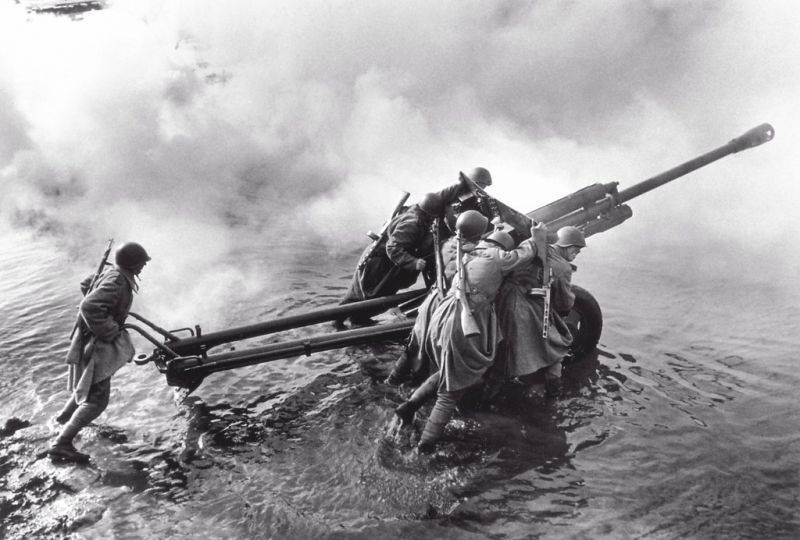
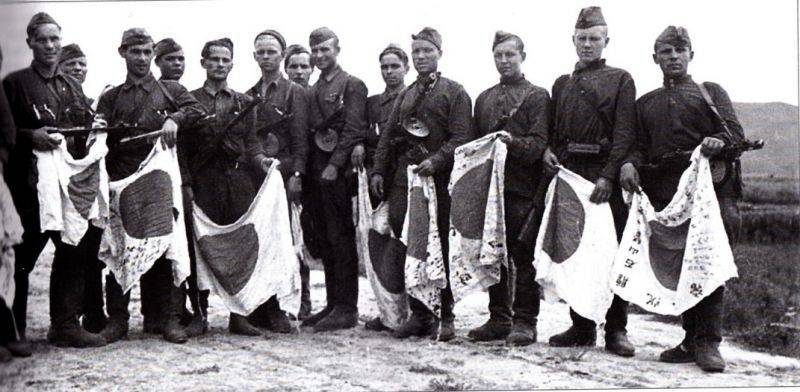
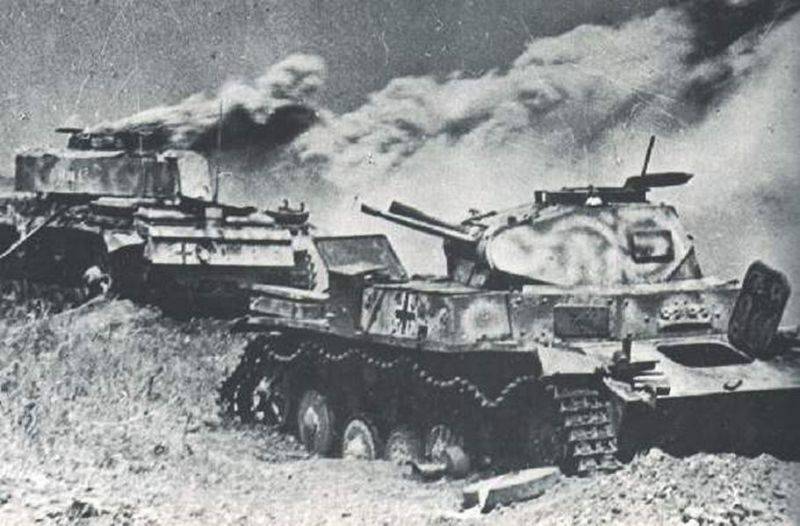
Information